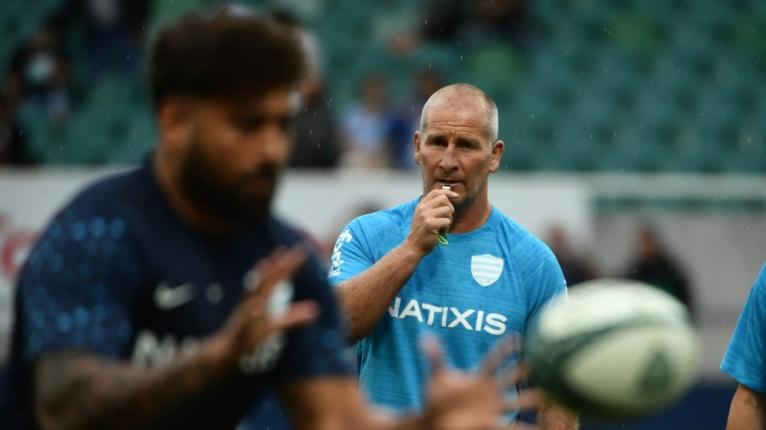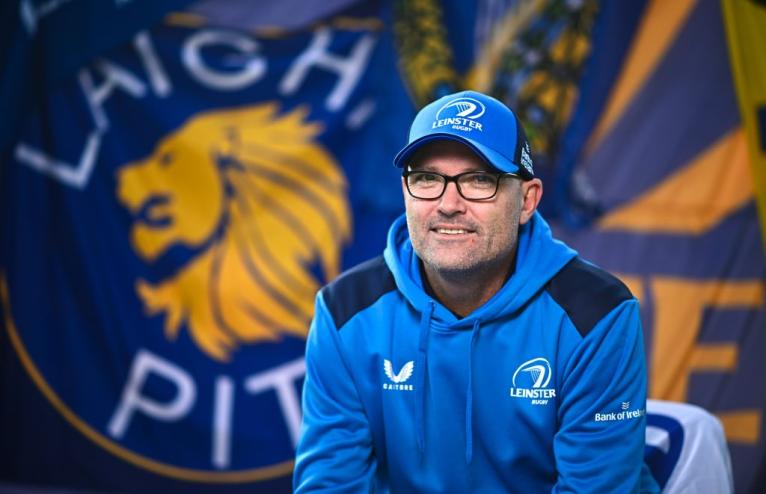The last World Cup cycle contained some of the greatest achievements in Irish rugby history. Under the stewardship of Andy Farrell, Ireland rose to number one in the world rankings with a 17-match winning streak dating back to the middle of 2022. The run started on a tour when they achieved their first-ever series win in New Zealand.
They also won a Six Nations Grand Slam in 2023, but lost in a World Cup quarter-final to the All Blacks for the second time in four years. It has become a nasty habit for the men from the Emerald Isle, and it mirrored the invisible wall barring Leinster’s progress to the very summit of the provincial/club game.
Leinster usually boast the most impressive record of any up until the very final stages of competition in both the URC and the Investec Champions Cup, but they have not found the magic ingredient to get their noses ahead when it matters, when silverware glitters and beckons.
They could do worse than look across the water, to a statement by the legendary American Football coach Bill Parcells. After several near-misses in the early 1980s, Parcells’ New York Giants were labelled ‘the nearly men’. When his charges finally exorcised their demons at the 1986 Superbowl, Parcells knew exactly what it meant: “For the rest of your life, nobody can ever tell you that you couldn’t do it. ‘Cause you did it.” Current Leinster and players and coaches alike would be nodding in agreement, because that is precisely the step they need to take.

It is a task which faces not only Farrell in his second World Cup cycle, but also the new Leinster senior coach, South African World Cup winner Jacques Nienaber. Under the man he replaced, Stuart Lancaster, the province had evolved the most sophisticated attacking system anywhere on the planet, and his playbook was swallowed by Farrell’s Ireland lock, stock and barrel. Frequently there are as many as 12 or 13 Leinster players in Farrell’s starting line-up.
But Nienaber is a defensive coach, which means the emphasis will now change dramatically at both provincial and national level. How much of Lancaster’s pioneering work will be retained as the energy investment tips towards defence?
The challenge of that transformation cannot be underestimated. Before last weekend’s Champions Cup game against Sale Sharks at the RDS, the headline in one popular Irish paper read Leinster to eat toothless Sharks alive to take control of Champions Cup group.
Sale boss Alex Sanderson had selected a side shorn of 14 first choices, but the seismic defensive shift between Lancaster and Nienaber meant the Sharks were always likely to find a fertile feeding ground of their own. A team in transition is always vulnerable, even when it is working at Leinster’s stratospheric level of operations, and the assumptions in that piece turned out to be wide of the mark:
“Once again, an English club has decided it’s not worth the hassle of bringing their front-liners to Dublin and so the Irish province has the opportunity to post a big score and build on last week’s win in La Rochelle.
“These non-events are becoming something of an annual tradition… Organisers EPCR probably felt that this format might help mitigate against weakened teams being fielded, but not so. And so, Sale’s Sharks turn into lambs to be slaughtered by the four-time champions who make four changes to their side.”
It is highly unlikely the Leinster coaching group shared that view. Sale Sharks not only turned up to play, they even scored three tries of their own in a 37-27 defeat.

The problems facing Nienaber and his director of rugby Leo Cullen in managing such a huge upheaval in playing style were duly pointed. Where Lancaster wanted Leinster to fill the width of the field defensively in a modernised ‘up and out’ pattern, Nienaber will ask the men in blue to come hard upfield and keep coming, cutting down width before it ever materialises. Where the Cumbrian wanted his charges to makes tackles square on, the South African will require them to be executed out to in, from the blindside of the ball-carrier.
It makes a huge difference, both as an adjustment in individual tackling technique and in the tilting of the overall energy balance towards defence. Blitz defences are notoriously hard to run and sustain because of the stretching of anaerobic resources: as the line moves faster and further upfield, the backfield and scramble defence has more ground to cover behind them. Good ‘rush’ is very hard yakka indeed.
The Sharks showed right from the start they had the confidence to test Leinster in the areas they are looking to change; in the middle of a philosophical transition, and even without the talent of George Ford, Manu Tuilagi and the James brothers, Sam and Luke, to sharpen the edge of the attacking axe.

The line spacing is narrow and wing Jordan Larmour is standing at least five metres further infield relative to where he would be in a Lancaster design. That means full-back Hugo Keenan has to move up earlier on the wide outside and number 11 Jimmy O’Brien has to cover all the way across to the right sideline if Larmour does not take man and ball.
A defensive scrum later in the same quarter illustrated the changed attitude of the Leinster midfield and wingmen, and how hard the adjustment truly is.

Number 13 Garry Ringrose is not mindful of the width of the field and he is not trying to make a tackle square on, he only has eyes for the second receiver Robert du Preez – even if it means crossing halfway to the opposite side of the field and towing left wing O’Brien with him. The idea is to blindside the ball-carrier and cause mayhem before the ball ever reaches the sideline, but the Ireland centre was pulled up for an offside penalty which spoiled the effect. If it illustrates the ultimate picture Leinster want to paint, equally it shows where Leinster really are in their search for new aggression in defence.
Sale exploited the uncertainty for a full seven-pointer shortly afterwards.
Ringrose is the man who would typically hedge his bets and cover the short chip in behind, but he is committed to rush upfield and out of the play when Sale scrum-half Raffi Quirke drops a delightful kick into that space. With Keenan again positioned wider than normal, the ball finds grass and there is ample space available for Du Preez to pick it up and send Connor Doherty away for the score.
More positive signs of what Nienaber is looking to accomplish in his transformation of the Leinster defence were epitomised by Jimmy O’Brien’s performance on the left wing.
In both instances O’Brien is chasing at least 10-15 metres infield on an acute angle, to bisect the passing lane and recover the fumble. At the end of the second clip, Leinster did not use the broken field to run the ball in as they might have done under Lancaster. They kicked to the corner and hunted the ball down again instead.
This is the new Leinster, physically more direct than before and more uncompromising on defence. Even with Keenan off the field on a yellow card, the Dubliners were still pressing up hard and trying to cut down the Sale backs deep in their own 22 at the very death.
If O’Brien does not make the tackle, either Robbie Henshaw needs to chop the break down in cover, or the next tackler will be 50m away on the home 40m line.
Rush defence is a double-edged sword indeed. Thus far Leinster have lived by it in the first two rounds of the Champions cup, first away at their old nemesis La Rochelle and latterly at the RDS against the Sharks second XV. At times they have been wounded by it too, even if rumours of their demise have been exaggerated.
But the Nienaber methodology is not something which can be pleasantly added to what has been taught before, like whipped cream on top of a baked cake. It will demand a total change in attitude and energy, and it may even result in Leinster losing some of their sophistication with ball in hand.
Will the trade be worth it? Or will it turn out to be a capital Faustian pact? It may be left to Farrell to find the answer, as he sorts through the philosophical turbulence with the same players in Ireland training camp before the Six Nations begins. One thing is for certain, it is crossroads time at the elite level of the game in the Emerald Isle.



They certainly looked like any ordinary team until 20 min to go, when the old Leinster execution came into play. I can imagine the same execution on defence will take as long as the attacking philosophy did to embed?
Strange decision by Leinster to go through the upheaval? They will be a good test case, in this instance we saw the advantage nailing the attack gives, by running away with the game when they got it right against very good d. Do they think strategically that last hurdle - trophies - will be easier to accomplish defensively, or that they needed to round out their game before someone can take them to the top?I also wouldn't expect clubs to change their playing/resting policies on just the concept of the format change, it will be at least a year before you see clubs patterns start changing towards these fixtures.
Neinaber and his coaching team will welcome Will Connors return. It was interesting to see him start against LAR, with van der Flier coming off the bench. That would have to be the best 7 pair in the world currently ? Connors is a lot taller than I thought…1.98 m against van der Flier at 1.83 m.
Joe McCarthy is coming on well. He may even be a consideration to start at some stage in the 6 Nations ? And Kieran Frawley too. Yes. Leinster are still very well endowed.
Nic how can it be that tweaking things at one province can change how the national team plays when they have their own style and own defence coach which is in place for the next four years at least. Unless you are suggesting that all four Irish provinces will tweak their defence with the national team to follow?
Thank you NB. I’m guessing this is the style that Leinster and Ireland want otherwise why give the job to JN? As Mzilikazi states below I also wonder how much that quarter defeat again to the ABs will effect the Irish?
A very interesting topic, Nic. It is one I have been pondering as Ireland’s rugby players pick themselves up after the disappointment of RWC France. And what an interesting facet, that the World Cup winning coach is now with Leinster. That is two of the world’s top coaches in Ireland, Farrell joined by Nienaber.
“…Nienaber is a defensive coach, which means the emphasis will now change dramatically at both provincial and national level.” My hope would be that Nienaber takes the fruit farmers approach. He looks at the tree Stuart Lancaster has left, beautifully shaped, strong and healthy, maybe a few bits of pruning to do. But he sees he can improve the tree, and grafting is the answer. Graft his defensive game onto the tree Lancaster has so beautifully grown, then Leinster, and Ireland, will have a game that is very hard to beat.